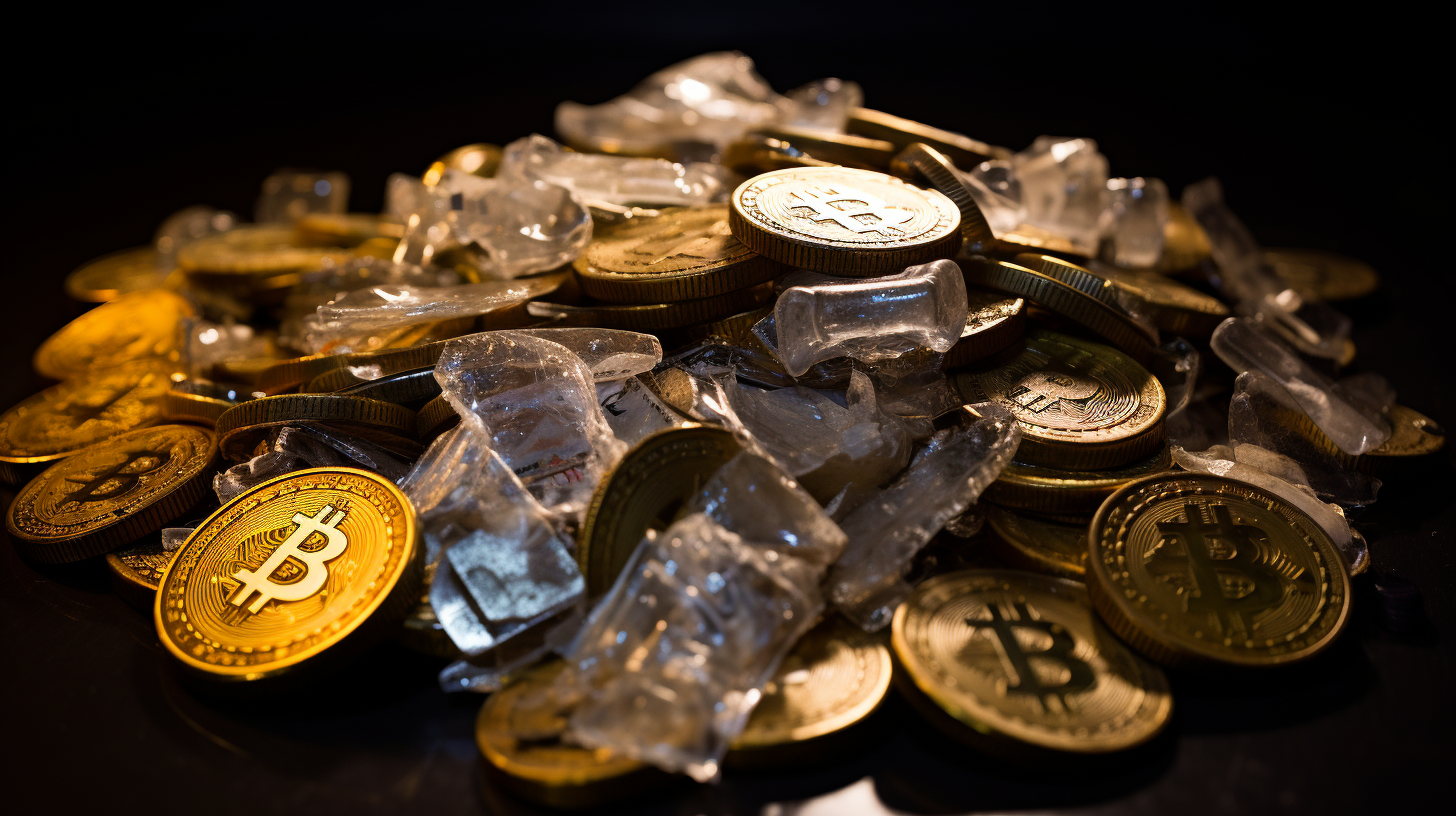In the shimmering glow of a world that has wholeheartedly embraced cryptocurrencies, an unexpected hero emerges from the shadows of landfills: bottle recycling programs. These initiatives have been transformed by the digital currency realm, illustrating how blockchain technology can not only revolutionize finance but also bolster our fight against environmental degradation. As we delve into the intricate dance between digital assets and recyclable containers, we unveil a tale of innovation and hope.
Imagine for a moment that you’re taking a stroll through the avenues of Crypto City, your pockets jingle not with coins but with the silent hum of a digital wallet teeming with altcoins. Here, the mundane act of depositing a plastic bottle into a recycling bin has become a lucrative environmental deed. Recycling machines have morphed into ATMs of sustainability, rewarding conscientious citizens with cryptocurrency vouchers for every bottle recycled.
These vouchers are not your average tokens, they are infused with smart contracts that ensure users can only redeem them at participating local businesses, encouraging a healthy economic cycle within the community. It’s a powerful incentive that transforms ecological action into palpable gains for the individual and the society. But how did we get here? It’s a stroke of genius that traces back to a few trailblazing startups that envisioned a cleaner planet fostered by the allure of cryptocurrency.
Digital wallets and dApps, or decentralized applications, are at the heart of this symbiosis. A user drops a bottle into a smart recycling bin, which immediately tallies the contribution and allocates digital tokens into their wallet. Think of it as mining for coins by unearthing a mountain of recyclables. The blockchain here serves a dual purpose: it verifies and tracks recycling efforts while simultaneously creating a transparent and fraud-resistant system.
Further down this rabbit hole of innovation, we discover so-called ‘Green Coins’, a specialized cryptocurrency awarded for recycling, which can accumulate and appreciate in value over time. Users might save them up for a clean-energy vehicle, solar panels, or simply trade them on decentralized exchanges for other cryptocurrencies — the possibilities are utopian in essence.
These programs also foster competition. Local governments have started league tables akin to sports rankings, showing which neighborhoods are taking the lead in recycling for rewards. Innovative companies sponsor these leagues, and the winning community enjoys pricey infrastructure improvements or festive celebrations funded entirely in crypto. This competitive spirit spurs a collective move towards eco-friendliness that would have been unthinkable in the pre-crypto era.
However, it’s not all sunshine and sustainable rewards. Skeptics point out the energy consumption of blockchain networks, highlighting the irony of a recycling program that relies on a potentially polluting technology. While this is a valid concern, the crypto world is already on it, with significant strides towards proof-of-stake systems and greener mining practices.
Moreover, adoption hasn’t been universal. Some consumers still cling to their skepticism, wary of the volatility associated with cryptocurrencies and the digital divide that could sideline the less technologically adept. But, as these programs gain traction and the benefits become irrefutable, those hesitations are slowly eroding, like plastic set adrift in a conscientious ocean.
The impact of this synergy between sustainability and finance cannot be overstated. It’s a glimpse of the profound societal change that can occur when innovation aligns with environmental stewardship. Recycling programs have become trailblazers in showing us the way to a more sustainable and financially inclusive future.
As we stand at the precipice of potential, it’s clear that the marriage of cryptocurrency and bottle recycling is not just a fad but a formidable force for good. Regardless of the volatility of the crypto markets, this is one investment in the future of the planet that promises rich dividends for generations to come.
